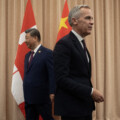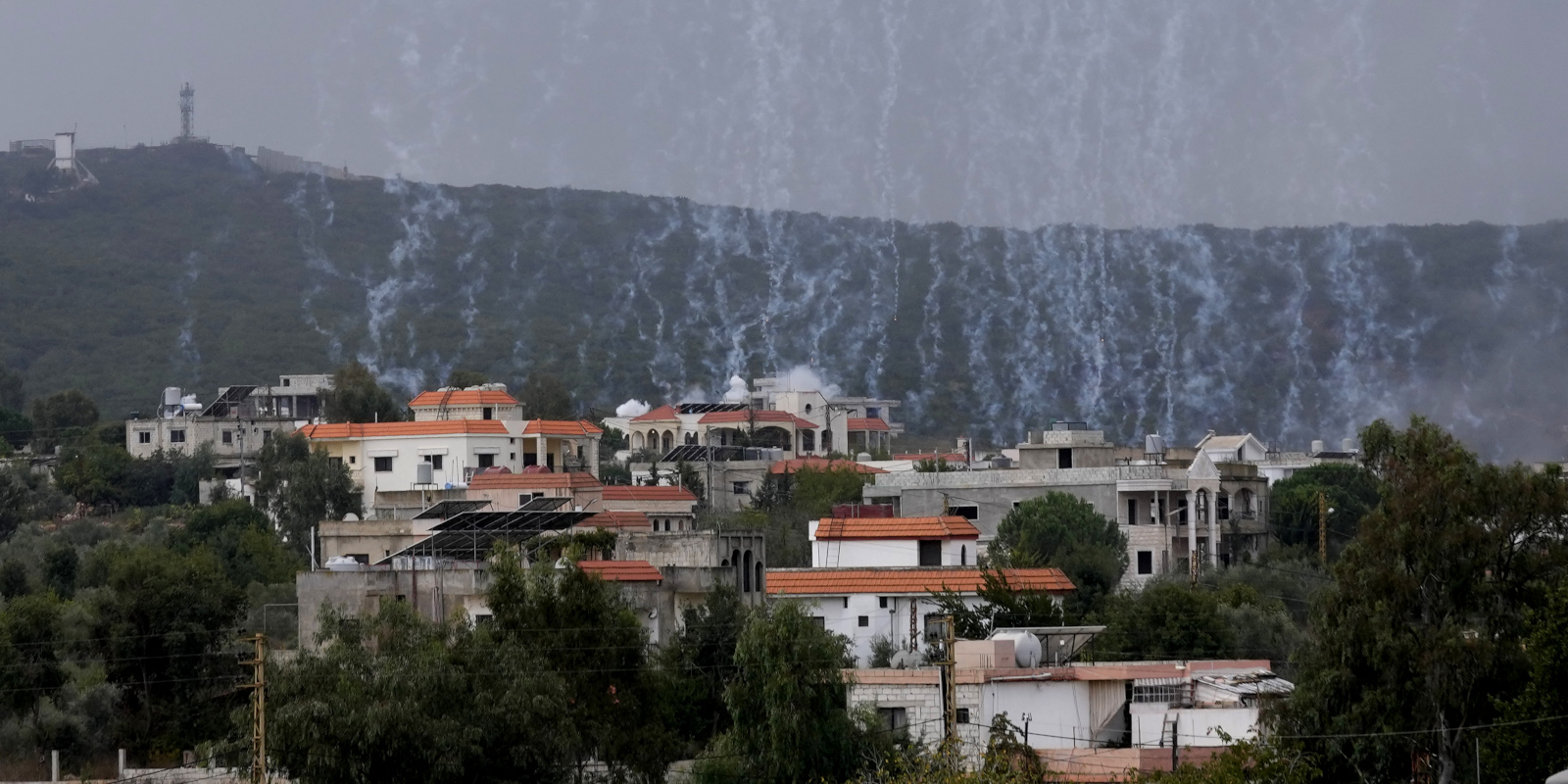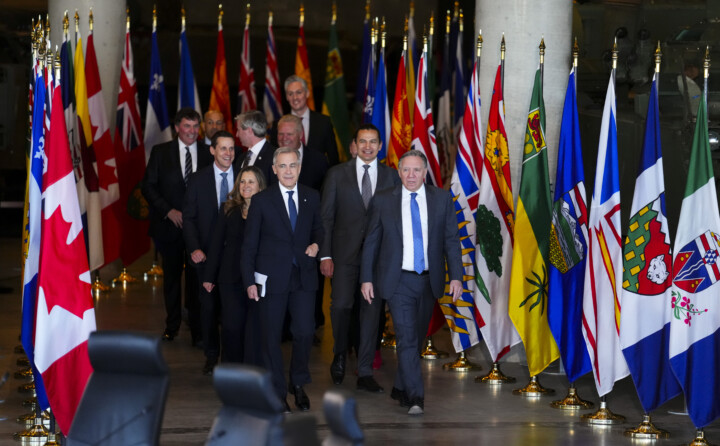OTTAWA — The prospect of a regional war in the Middle East is looming large in the minds of global leaders as Israel readies tens of thousands of soldiers to invade the Gaza Strip and dismantle the leadership of Hamas in the wake of deadly terrorist attacks carried out by the group last weekend.
Jake Sullivan, the U.S. national security adviser, said he “can’t rule out” the prospect of Iran getting directly engaged in some way, while Iran’s foreign minister warned the country “cannot remain a spectator” in the conflict.
“To any country, any organization, anyone thinking of taking advantage of the situation, I have one word: don’t. Don’t,” said U.S. President Joe Biden, in a speech after the Hamas attacks. The warning was widely seen as directed at Iran and Hezbollah, the Iranian-backed terrorist organization that has assembled forces on Israel’s northern border with Lebanon.
The Hamas attacks on Israel could “change the Israeli calculus regarding Iran,” said Robert D. Kaplan, an American journalist and author who was been writing about foreign affairs for decades, in an exclusive interview with The Hub.
“Even if the Iranians were not involved in that attack, for years and decades they have been providing Hamas with logistics, training, and money, trying to bring Hamas… up to the level of Hezbollah,” said Kaplan, speaking to The Hub‘s executive director Rudyard Griffiths on the Hub Dialogues podcast.
In the short-term, the Israelis will be trying to avoid an escalation while they focus on the ground invasion of Gaza, which will eat up the military’s attention and resources, he said.
Any change in posture towards Iran will happen “some months down the road, because the fact is, the Israelis have all they can handle with Gaza now,” said Kaplan.
Kaplan also said that Iran will, in the short-term, be trying to avoid any direct confrontation with Israel, because it could quickly draw the United States into the conflict.
“I don’t see the Iranians trying to instigate a major conflict now because they don’t want the Israelis to get from the Americans bunker-busting bombs and air-to-air refueling, which would be necessary for an easier Israeli strike on Iranian nuclear facilities,” said Kaplan.
Kaveh Shahrooz, a lawyer, human rights activist and senior fellow at the Macdonald-Laurier Institute, said it’s highly likely Iran was, at least, aware of the Hamas attack on Israel before it was carried out.
“I cannot for the life of me imagine that a group like Hamas would launch an attack this brazen without sign-off from Iran, a country that pays it nearly $100 million a year and provides them with weapons,” said Shahrooz.
“I don’t think the solution is going to be war with Iran, though the Israeli government may be tempted to go in that direction,” he said.
Shahrooz pointed to revolutionary sentiment already brewing in Iran and argued that an external attack from Israel, assisted by the United States, could actually hand the Iranian government enough legitimacy to put down the revolution and extinguish a domestic threat.
Eventually, though, Israel will have to deal with an increasingly menacing Iran, he said.
“I don’t think it can be limited to Gaza. If Israel is serious about taking care of the Hamas problem it has to take care of the Iran problem,” said Shahrooz. “So my hope is that they would actually… help the revolutionaries themselves take out this regime.”
With the U.S. supporting Ukraine fight an ongoing Russian invasion and now moving resources to the Middle East to tamp down fears of a larger regional crisis, some experts warn that China could be preparing to take advantage of a distracted America.
China has been working quietly with countries who share its interest in unseating the United States as a global hegemon, said Elbridge Colby, the former U.S. deputy assistant secretary of defense for strategy and force development, in an interview with The Hub.
“They’re gaining leverage. They’re driving wedges. They’re trying to distract and tie down the United States. That, to me, is consistent with the behaviour that they would do if they were preparing for a big move in the western Pacific,” said Colby.
Despite the turbulence around the world, Colby said that the Asia Pacific region is still the “decisive theatre” for the United States.

Many experts believe the attacks by Hamas are a deliberate effort to sabotage the Abraham Accords, which saw the United Arab Emirates, Bahrain, and Morocco recognize Israel’s sovereignty in exchange for diplomatic concessions. Saudi Arabia was expected to follow those countries and world leaders had marvelled at the movement towards peace in the Middle East.
Both Kaplan and Shahrooz said they were cautiously optimistic about the future of the accords, although they have been disrupted in the short-term.
“My sense is that the Saudi-Israeli movement towards relations and the Abraham Accords will go into cold storage for the moment but are not by any means dead,” said Kaplan.
Shahrooz said the Israeli response, and how the region reacts, will dictate the future of the accords.
“Some of it will come to be determined the next few weeks in terms of what Israel does and how strongly it reacts and how many civilians end up getting killed. But at the moment, I think that peace will probably still hold and I think most of the countries that have observed this, understand that you have to deal with the Hamas problem,” he said.
Recommended for You

Canadians lost confidence in Parliament at end of Justin Trudeau’s prime ministership: Statistics Canada

‘All risk and no reward’: The Roundtable on why Carney’s China trip is a really big deal

Mark Carney’s spelling and the ghost of Sir John A. Macdonald

Harper was right—Canadian foreign policy should prioritize the Americas: The Weekly Wrap



